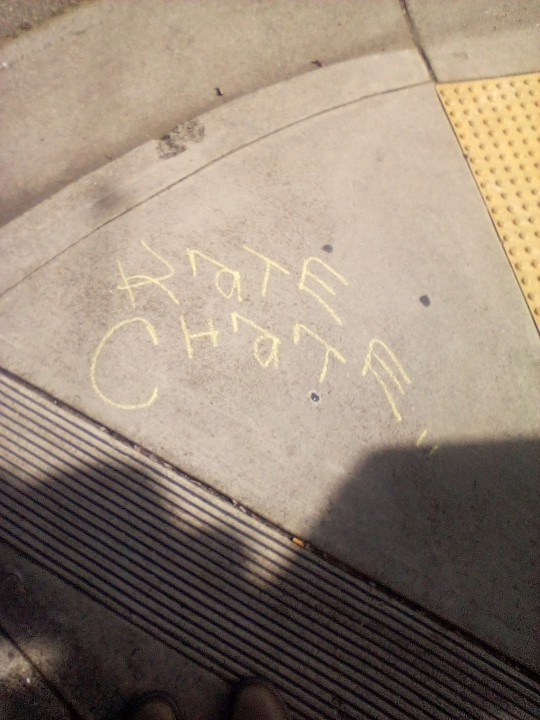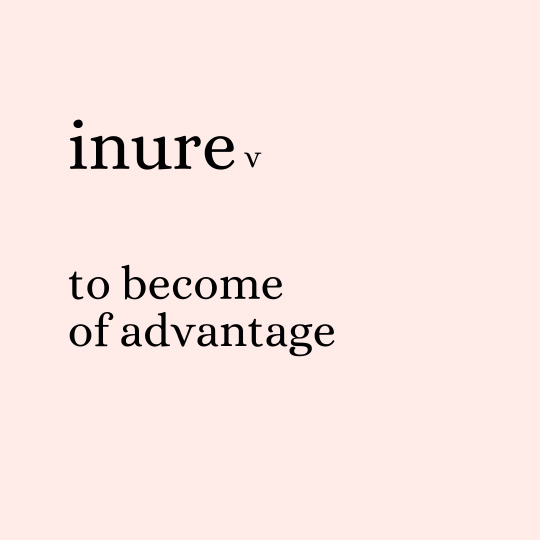#verb
Text
50 WORDS TO USE INSTEAD OF “SAID”
Do you ever find yourself over-using the word “said” in your writing? Try using these words/phrases instead:
stated
commented
declared
spoke
responded
voiced
noted
uttered
iterated
explained
remarked
acknowledged
mentioned
announced
shouted
expressed
articulated
exclaimed
proclaimed
whispered
babbled
observed
deadpanned
joked
hinted
informed
coaxed
offered
cried
affirmed
vocalized
laughed
ordered
suggested
admitted
verbalized
indicated
confirmed
apologized
muttered
proposed
chatted
lied
rambled
talked
pointed out
blurted out
chimed in
brought up
wondered aloud
(NOTE: Keep in mind that all of these words have slightly different meanings and are associated with different emotions/scenarios.)
#words to use instead of#said#words#writing prompt#prompt#writing#prompts#writing prompts#creative writing#writing advice#verbs#verb#word#synonym#synonyms#writing tip#writing tips#writing help#word choice#writer
63K notes
·
View notes
Text
The 然's
突然,虽然,忽然. and the other 然's can often get mixed up, so here's a quick explanation of some of the most common ones!
突然 (Túrán): This means suddenly or unexpectedly
居然 (Jūrán): This kind of means suddenly, but more in the sense of "surprisingly" or to suggest disbelief at something that happened.
忽然 (Hūrán): This also means suddenly or unexpectedly, but it has a more stronger connotation.
既然 (Jìrán): This is a conjunction meaning "since" or "now that"
既然the weather is great, let's go out!
既然 you aren't busy, let's go watch a movie.
不然 (Bùrán): This means "otherwise" or "or else";
You should study, 不然 you won't do well on the exam.
虽然 (Suīrán): This means although or even though.
虽然 I'm not good at singing, I still like to go to the karaoke.
当然 (Dāngrán): 当然 means certainly or definitely and can be used as a reply:
Can you help me with A? 当然!
自然 (Zìrán): This can mean nature or naturally.
China's 自然 is very beautiful.
She speaks Chinese 得很自然.
仍然 (Réngrán): This can mean "still" or "yet".
I仍然 haven't read that book.
依然 (Yīrán): Similar to 仍然, this also means still" or "yet" but it's usually used in more formal and literary works, whereas 仍然 is more often used in spoken language.
果然 (Guǒrán): 果然 can be used to mean "indeed" or "as expected"
This movie is 果然 interesting.
竟然 (Jìngrán): This is an adverb used to suggest surprise or something unexpected.
He竟然forgot her birthday.
显然 (Xiǎnrán): This means "clearly" or "obviously".
This soup 显然 hot.
偶然 (Ǒurán): This means "accidentally" or "by chance".
We 偶然 met at the same cafe.
How many other 然's do you know about? Drop a comment!
#slavic roots western mind#student life#student#study blog#college#college life#travel blog#aesthetic#studyblr#study motivation#chinese#china#study in china#life in china#learn chinese#chinese grammar#grammar#vocabulary#chinese vocabulary#chinese verbs#verbs#verb#chinese studyblr#mandarin langblr#mandarin#mandarin chinese#chinese language#language learning#chinese langblr#language resources
72 notes
·
View notes
Text

English be like this FR.
94 notes
·
View notes
Text

"sedated"
Image: an emoji yellow head with closed eyes with shadows underneath them, and a blue arrow leading from a pill bottle into their brain, which is turning from pink to grey around the arrow. there are 'z's next to the face.
#medical#sedation#medication#sedated#medical abuse#aac image#aac symbol#communication symbol#communication image#aac emoji#custom emoji#verb#states of being
20 notes
·
View notes
Text

"destroy by harrying"!!?
"DESTROY BY HARRYING"!!!?
"DESTROY BY HARRYING"!!!!!!!!?

how the fuck is "harry" an actual verb I'm in tears rn
#harry potter#harry potter memes#like i cant even#oh my god#how#is#harry#an#actual#verb#I love language#this is in my textbook of history of english language#i think thats also the name of the textbook#this is insane#did i say i love language
31 notes
·
View notes
Text

#english student#learning english#vocabulary#vocabulary list#wotd#verb#english studyblr#studyblr#english vocab#english#vocab list#vocab#writeblr
8 notes
·
View notes
Note

What better way to get started than with Fire Emblem's favourite word, dastard, which appears in just about every game, be it officially or unofficially translated? This shot in particular is from the new (fan)translation of FE4, but it was present in the older one as well. Fans often seem to assume it's just a butchering of "bastard" (for ratings reasons) without realising that it is a real word with a real meaning.
( "Implore" is also a possible candidate, and perhaps also "adore" and "undercut" as well if you want to be thorough. )
An Emblematic starting word, indeed!
Fire Emblem's relationship with pejoratives is an interesting one, and while dastard is definitively a distinct word from bastard, I do think there is a relationship between the use of old-timey insults and the need or desire to keep things "Nintendo-friendly." It was rare to see even a damn in the first localized games, and part of the way localization circumvented this was to have the characters use epithets that sounded... well, medieval. Hence your craven!s and your cur!s and, if you're feeling extra spicy, your craven cur!s. I'm actually hard-pressed to recall a usage of dastard in at least FE7 (which was fond of blackheart in similar circumstances); maybe the ESRB thought it was a little too close to the B-word for comfort.
Of course, as the series settled comfortably into a consistent "T for Teen" rating, sensibilities surrounding language loosened up. Awakening was the first game to see characters swearing on a fairly regular basis— up to and including bastard with a B! Yet we still see dastard often enough in modern FE games, which should put to rest the notion that it's merely a euphemism for a more offensive term. They're used differently, and that boils down to both meaning and tone.
(This is where I was initially going to expound on bastard, but just as that section of the post was getting to be too long, an angel of mercy sent an Ask for that very word. So stay tuned, all you beautiful bastards.)
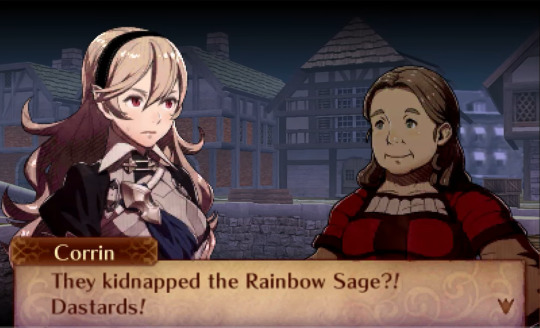
Kidnapping is, of course, Dastardry 101.
So, what exactly does it mean to be a dastard? Merriam-Webster gives two definitions: 1) “coward,” and 2) “a person who acts treacherously or underhandedly.”
While people do seem to assume dastard as it appears in FE is a willful typo, I’d wager most of you have actually heard its adjectival form: dastardly! Yes, that’s an adjective, not an adverb, despite the -ly ending— same with words like friendly and unsightly.
If the context hasn’t made it clear by now, these words are practically synonymous with villainy. But we’re not just talking any old villain: the key word in the above definitions is underhanded. Dastard carries the sense of cowardice with it because it’s associated with backstabbing, behind-the-scenes scheming, sneak attacks, and just generally dirty tactics. Arguably the most famous “dastard!” in Fire Emblem is directed toward Arvis in Genealogy of the Holy War, and it’s patently well-deserved. And even though Chagall in the asker’s provided screenshot might be projecting juuust a little bit, he actually does well to give us some context clues, as he accuses Eldigan of getting close to his father in order to get one over on Chagall— which, if it were true, would certainly qualify as underhanded. Not as underhanded as murdering your peace-loving king and father, maybe, but who’s to say.
So while modern audiences will sooner associate this word with being a villain than with merely being a coward, it’s important to note that not every villain is a dastard. Your big, strong, honest warlord types— Walhart, for instance— are generally not going to be very dastardly. Neither are your force-of-evil gods and monsters… after all, who needs trickery and deception when you can turn your foes to stone, incinerate them with your breath, or simply eat them? And while yes, dastard and bastard are different words, one commonality you might have noticed is how male-gendered they both are in practice. Nothing whatsoever is stopping a woman from being a dastard, but it’s unlikely she’ll ever be called one.
As for the other words:
Implore basically means beg, though it implies a little more dignity. Rather than falling to your knees, folding your hands, and crying a lot, you need a more strategic and sophisticated approach when imploring. Eldigan’s completely sincere in his desire to put a stop to Chagall’s warmongering, but he doesn’t lower himself upon asking.
Adore means love, especially in a worshipful or fawning way. While it can still be used in an earnest way, it's just as often tinged with condescension, implying disdain for the adorer, the adoree, or both. I’m not sure when adorable came to be synonymous with cute, but I think there’s an intentional hyperbole in that usage that became lost as it became common. Chagall may likewise be hyperbolizing, intent as he is upon framing Eldigan as… well, a manipulative dastard. Having already learned his true feelings toward his father, what's meant to communicate sympathy for the king to Eldigan rings hollow and ironic to the audience.
Undercut as used here means the same as undermine, which is to weaken or make useless via subtle or covert means. It’s all very underhanded… or shall we say, dastardly. Undercut does have more of an association with direct competition or rivalry, though, which gives the sense that part of this may be personal to Chagall.
Well, I think that covers everything! Tune in next time, when we discuss dastard’s edgier, PG-13 cousin. Oh yes, I was serious.
#fire embem#vocabulary#dastard#insults#noun#fe4#genealogy of the holy war#chagall#eldigan#corrin#fates#fe14#conquest#implore#adore#undercut#verb
104 notes
·
View notes
Text
“It is not what you have, it’s what you don’t have that counts. And what we don’t have is a verb. Nothing makes sense without a verb.
--The Westing Game/Ellen Raskin
8 notes
·
View notes
Text
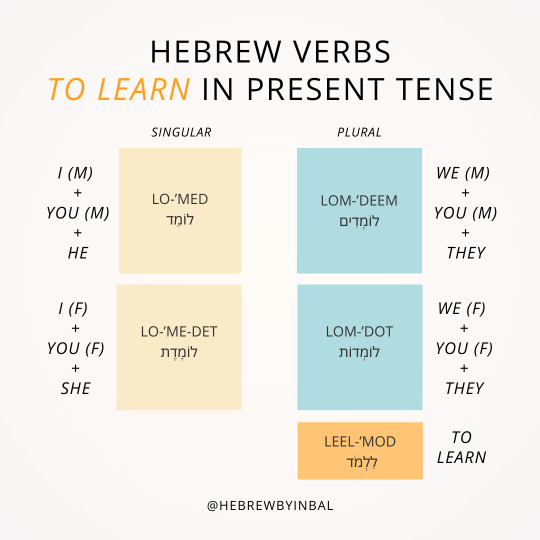
Are you ready to elevate your Hebrew conversations?
Mastering the present tense of the verb 'ללמוד' (to learn) is a great way to do just that.
Not only will this enhance your everyday dialogues, but it will also empower you to discuss your learning journey, your interests, and even your professional growth—all in fluent Hebrew!
Save this in-depth guide that will make this verb second nature to you, setting you on the path to Hebrew mastery 🌟
#hebrew#jewish#learnhebrew#hebrewbyinbal#language#hebrew langblr#israel#jew#torah#trending#verbs#verb#to learn#language lessons#hebrew language#hebrew alphabet#hebrew bible#hebrew israelites#hebrew names#hebrew school#language learning#learn hebrew#jewish tumblr
14 notes
·
View notes
Text
I Verbs in Chinese
A guide to some common I verbs in Chinese~
Ignore - 忽视 - hūshì
Illuminate - 照亮- zhàoliàng
Imagine - 想象 - xiǎngxiàng
Imitate - 模仿 - mófǎng
Improve - 改善 - gǎishàn
Implement - 实施 - shíshī
Include - 包括 - bāokuò
Incorporate - 合并 - hébìng
Increase - 增加 - zēngjiā
Indulge - 沉迷 - chénmí
Inform - 通知 - tōngzhī
Innovate - 创新 - chuàngxīn
Initiate - 启动 - qǐdòng
Inquire - 询问 - xúnwèn
Inspire - 启发 - qǐfā
Instruct - 指示 - zhǐshì
Interact - 互动 - hùdòng
Interrupt - 打断 - dǎduàn
Intervene - 介入- jièrù
Introduce - 介绍 - jièshào
Investigate - 调查 - diàochá
Invite - 邀请 - yāoqǐng
Involve - 参与 - cānyù
Invent - 创造 - chuàngzào
Invest - 投资 - tóuzī
#chinese#learn chinese#mandarin langblr#chinese langblr#chinese language#college#college life#student life#studyblr#study blog#study motivation#travel blog#student#slavic roots western mind#chinese verbs#chinese vocabulary#verb#vocabulary#langblr#languages
135 notes
·
View notes
Text
to have in ixi
/osukubi/ ausukubi (infinitive)
conjugation (irregular):
1sg: /osubi/ ausubi
2sg: /osuk/ ausuk
3sg: /osobu/ ausaubu
1pl: /okubo/ aukubau
2pl: /okusi/ aukusi
3pl: /okib/ aukib
5 notes
·
View notes
Text
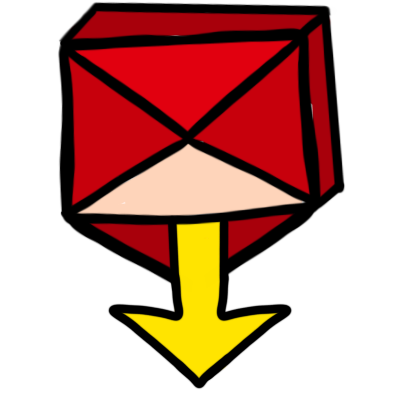
"unwrap"
image: a light brown box partially wrapped in red paper, with a yellow arrow pointing down from the part without paper.
#aac symbol#actions#verb#unwrap#aac image#communication symbol#communication image#aac emoji#custom emoji
13 notes
·
View notes
Photo
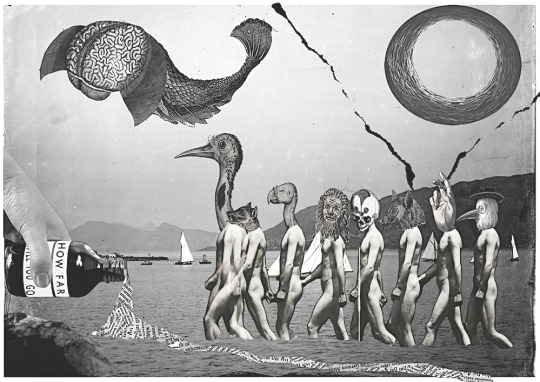
"Towards the Source"
[Digital Collage; 2022]
To be featured in the upcoming Fragmented Collective publication "Black & White".
Prints of this artwork are on sale at The Thorny Juniper online shop.
#Surreal#Collage#Surrealism#Black & White#Fragmented Collective#Symbolism#Towards the Source#Verb#Logos#Vesperalia#Artists on Tumblr#Art Prints
64 notes
·
View notes
Text
More Semecübuts
this time the inchoative aspect
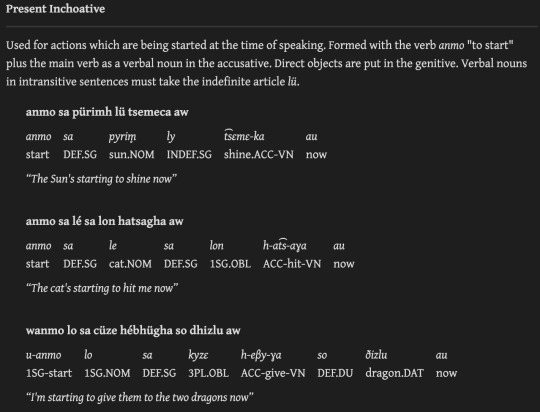
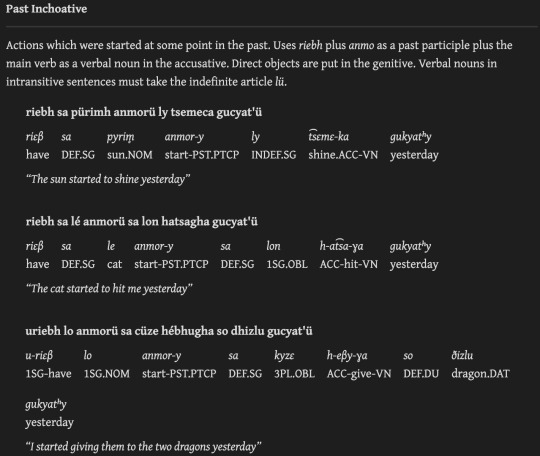
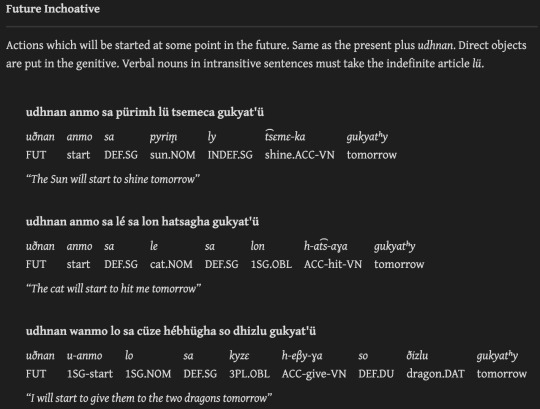
the cessative (stopping an action) also works similarly, but with a different verb, so I didn't feel like adding it here
3 notes
·
View notes








